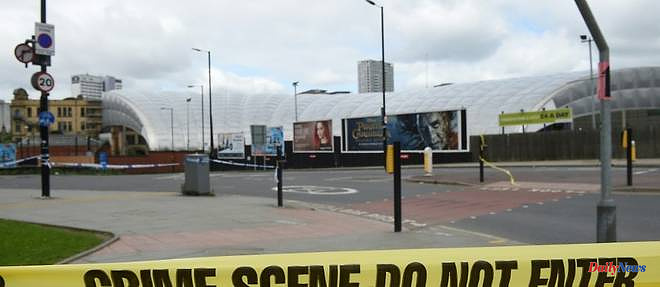British intelligence was accused in a damning report on Thursday of delaying processing information that could help prevent the 2017 Manchester Arena bombing that killed 22 people.
Almost six years after the attack, the 207-page text, greeted in tears by some families of the victims, came to conclude a long public inquiry launched two and a half years ago, which crushed the security of the room, rescue and the prestigious "MI5" (interior information).
On May 22, 2017, a 22-year-old Briton of Libyan origin, Salman Abedi, detonated a bomb outside this concert hall, after a performance by pop star Ariana Grande, killing seven children and 15 adults, injuring a hundred and shocking the United Kingdom.
The report's author, Sir John Saunders, focused on Abedi's radicalization and what information was available that may have prevented the attack.
On the basis of evidence and testimonies that have remained confidential, he concludes in particular that the intelligence services let information about Abedi pass and thus missed "the opportunity to take important investigative measures" targeting him.
"Twice in the months preceding the attack intelligence was provided to the security services, the importance of which was not realized at the time," Mr Saunders wrote.
He explains that the intelligence services did not process the information received concerning potential terrorist activities and that when they considered doing so, they did not act quickly enough and communicated poorly between the different services.
“Based on everything the security services knew or should have known, I believe that such investigations would have been a proportionate and justified response to take,” he added, while acknowledging that the chances of avoid the attack would have been "weak".
Director General of Domestic Intelligence Ken McCallum said he was "deeply sorry" that MI5 failed to "avoid the attack".
Salman Abedi had become a "subject of interest" for the intelligence services in 2014, but his file had been closed a few months later, the man being finally considered to be at "low risk".
Between December 2013 and April 2017, he had been identified on six occasions as a direct or indirect contact of suspected extremists.
The report also highlights Abedi's process of radicalization, including the role of his family - who shared "extremist views" according to the report - and the training and help "likely" obtained in Libya to make a bomb.
In August 2020, Salman Abedi's brother, Hashem Abedi, was sentenced to life with a minimum of 55 years in prison for helping the suicide bomber prepare for the explosion.
For Richard Scorer, a lawyer who represents eleven of the families of victims, the conclusions of the new report show that the lack of information "lost, at the very least, a possibility of avoiding the attack".
He described as "unacceptable" the shortcomings underlined.
"All we've been looking for from the start is the truth, an acknowledgment of the mistakes that happened that night and the assurance that such mistakes won't be repeated," said Helen Boniface, another lawyer for families of victims.
"We will never forgive the attackers or those who helped them, nor can we forgive those professionals who failed to act appropriately."
This latest report concludes a series of hearings conducted between September 2020 and February 2022.
A damning first report for venue security officials unable to identify Salman Abedi as a threat was released in June 2021.
A second report in November scrutinized the management of relief by the authorities during the suicide attack, estimating that the head of Manchester police had been "overwhelmed by the number of tasks he had to accomplish".
02/03/2023 22:43:46 - London (AFP) - © 2023 AFP












